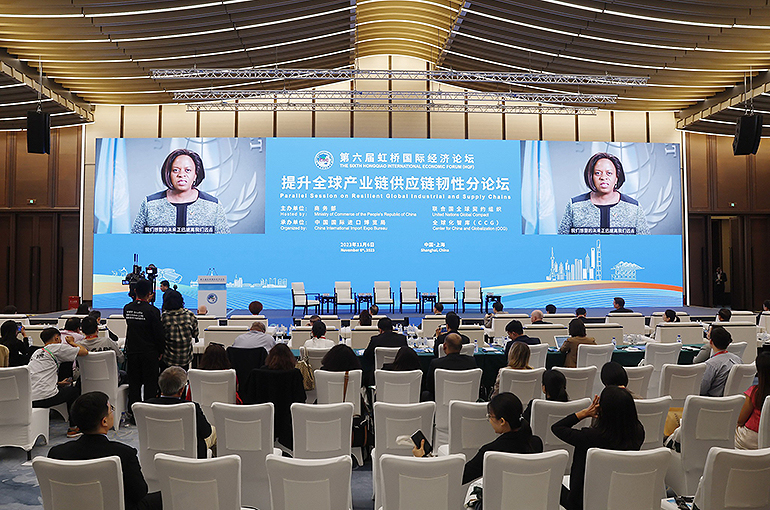 China Is No. 2 for Industrial Chain Resilience as Regionalization, Talent Pose Challenges
China Is No. 2 for Industrial Chain Resilience as Regionalization, Talent Pose Challenges(Yicai) Nov. 9 -- Despite ranking second globally for the resilience of its industrial chain, according to a new report by a Chinese think tank, China faces challenges as the pandemic and geopolitical struggles such as the Russia-Ukraine conflict have led to supply chains becoming more regional.
Among major world economies, China ranks right behind the United States for the strength of its industrial chain, the report by the Beijing-based Center for China and Globalization said. Titled ‘Improving the Resilience of Global Industrial Chains and Supply Chains,’ it was released on Nov. 6 on the sidelines of the sixth China International Import Expo.
China has clear advantages in manufacturing, overall industrial situation, and corporate vitality, the report said, but the country is weak in terms of human capital and investment in innovation needs strengthening.
Global industrial chains are shrinking into regional clusters, according to Yi Xiaozhun, former vice minister of commerce. Major economies are intervening strongly in global industrial and supply chains that have worked well for many years, forcing them to become shorter and even resulting in national self-sufficiency, he said.
The policies and practices they adopt not only violate the most basic principles of the market economy but also seriously deviate from the World Trade Organization’s multilateral trading rules, Yi said. Major economies should rationally balance the aspects of security, opening-up, as well as development to avoid falling into the pitfall of "pan-securitization," the ex-minister added.
Some hold the view that countries and businesses should try to diversify their supply chains and seek self-sufficiency, according to Vandita Pant, chief commercial officer of BHP Group. Such thinking seems theoretically reasonable, but in fact they will greatly increase the complexity of supply chains and drag down cost-effectiveness, further weakening the competitive advantages of companies.
So BHP is always deepening its supplier partnerships, which is the premise of making the group’s supply chain more resilient, Pant said, adding that the Melbourne-based mining giant has been working with Chinese clients, including suppliers, very closely to lessen any negative impacts on operations.
“China is the center of the world’s value and supply chains, favored by multinational corporations,” said Wang Huiyao, president of the Center for China and Globalization.
China’s base stations for fifth-generation wireless mobile networks account for 70 percent of the global total, while two-thirds of the world’s high-speed rail links are in China. The nation also has seven of the top 10 ports for container handling capacity, Wang added.
Editor: Emmi Laine